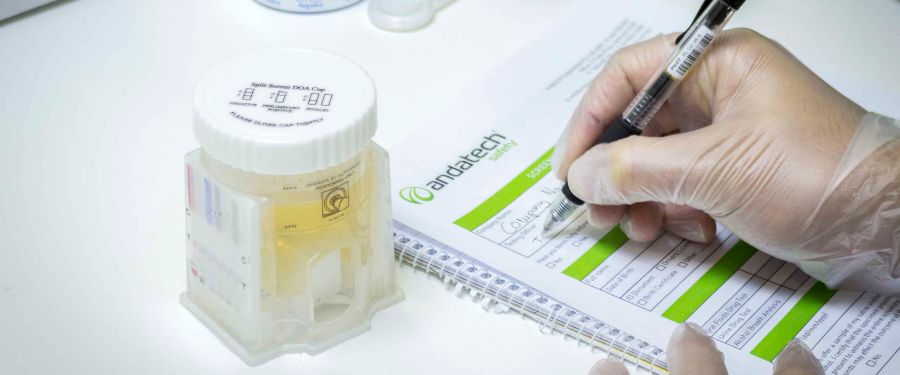Creating and maintaining a safe work environment is a top priority for businesses, regardless of industry and nature. A crucial aspect in ensuring workplace safety is a drug and alcohol-free workforce while on the job. Drug and alcohol testing is the most efficient way to ensure their people are sober when on duty.
This is of exceptional significance as many workplaces deal with heavy machinery, and a single mistake caused by alcohol impairment could be very costly and potentially lethal. Alcohol and other drugs cost Australian workplaces an estimated $6 billion per year in lost productivity and also contribute to 5% of deaths in the workplace. Substance abuse also contributed to 11% of non-fatal injuries at the workplace.
In this blog post, we delve into the topic of pre-employment drug testing and discuss the significance of safeguarding lives at the workplace and on the road.
Understanding pre-employment drug testing
The impact of substance abuse in the workplace cannot be overstated. Workers that are impaired not only put themselves at risk but also risk the well-being of their colleagues, customers and the overall success and growth of the organisation.
Pre-employment drug testing is a proactive initiative that is conducive to the productivity, professionalism and safety of all the parties involved. By implementing this initiative, employers ensure that individuals who may pose a risk to workplace safety or job performance as a result of drug or alcohol use are removed from consideration.
Legal considerations
When it comes to pre-employment drug testing in Australia, there are several legal considerations and regulations employers must adhere to. These regulations act as guidelines to ensure that the testing process is just and accurate while respecting the right and privacy of both the test subjects and the employer. Some key aspects to consider include:
- Privacy laws: The Privacy Act of 1988 governs the collection, use and disclosure of personal information, including drug test results. This law acts as a check and balance, ensuring employees handle sensitive information with the utmost confidentiality and only share it with concerned parties.
- Consent: Employers must obtain prior written consent from test subjects before conducting the test process. Consent forms should clearly state the purpose of testing, the types of drugs being screened, how the test will be administered and how the results will be used. Typically, the consent form and other relevant information should be in line with the organisation’s own drug and alcohol testing policy.
- Discrimination laws: Another law that protects prospective employees is the Australian Human Rights Commission Act 1986 which prohibits discrimination on various grounds, including disability. Employers must ensure that drug testing policies do not unfairly target individuals with medical conditions or disabilities.
- Testing methods and procedures: Employers must have a standard procedure on how to conduct the tests and the method in which the test will be conducted and must follow a strict chain of custody protocol to maintain the integrity of samples. The most common testing methods are urine and saliva drug testing.
It is crucial for employers to study and understand the specific laws and regulations applicable to their jurisdiction. If unsure, seek legal advice and consultation from relevant authorities and specialists to ensure compliance with all legal requirements to protect the rights of both employers and potential employees involved in the pre-employment drug testing process.
LEARN MORE: Andatech’s on-site drug and alcohol testing solutions
The importance of a drug-free workplace policy
Andatech understands how drugs can negatively affect a workplace and why a drug-free workplace benefits all relevant parties involved. Andatech takes a strong stance against drug use at the workplace and is committed to maintaining a safe work environment.
Andatech drug test kits comply with Australian and New Zealand standards of cut-off limits of up to 15 different drug groups to help accurately and fairly detect workers who are under the influence of drugs and alcohol. Apart from this, Andatech also helps organisations design comprehensive drug and alcohol testing policies that play a vital role in safeguarding workplaces across Australia.
A drug-free workplace can bring about the following benefits.
- Ensuring safety: safety should be the number one priority for any workplace. A drug and alcohol-free environment helps minimise the risk of accidents, injuries, and potential harm to concerned parties. This is especially true in safety-sensitive industries like mining.
- Enhancing productivity: drugs and alcohol can significantly impact an individual’s cognitive abilities, decision-making skills, motor skills and, ultimately, overall job performance. By eliminating drugs and alcohol from the picture, employees and staff members can dedicate full focus to their tasks at hand.
- Legal and regulatory compliances: The model Work Health and Safety Act requires a person conducting a business to ensure that the health and safety of their employees are taken care of. This can also include drug and alcohol testing to avoid any intoxication while on the job. Safety sensitive industries
- Upholding reputation and integrity: An alcohol or drug-related accident at a workplace will undoubtedly bring down the organisation’s reputation and integrity. A drug-free workplace helps protect the reputation of the company and shows stakeholders, clients and partners that the well-being of employees is taken care of.
- Creating a positive work culture: A drug and alcohol-free work policy sends a clear message of safety first and a positive work culture. It helps promote trust, respect, and fairness among employees, fostering a supportive and inclusive environment. Employees will be allowed to report concerns or seek assistance without fear of judgement or retaliation.
By implementing and enforcing a drug-free workplace policy, organisations stand a chance to create an environment that promotes safety, productivity, and well-being.
For more information on alcohol and drug testing in Australia, check out the following resources:
- How many standard drinks to 0.05?
- When can you drive after drinking?
- Drug detection windows
- Drink driving penalties in Australia
Browse Andatech’s wide collection of industrial breathalysers, personal breathalysers and drug test kits to start creating a safer Australia.





